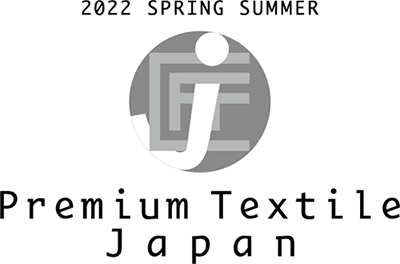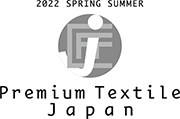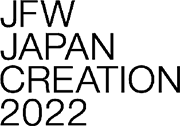
![INDEX[0] JFW Textile Fair 2021A/W](images/jfw_textile_fair_2021aw.jpg)
 |
![INDEX[0] JFW Textile Fair 2021A/W](images/jfw_textile_fair_2021aw.jpg) |
![INDEX[1] The < JFW-JC2021, PTJ2021 AW > events have now ended. - Thank you very much for your support! –](images/title_index_01.gif) Greeting message: - by Akira Kawashima, Senior Director, JFW / Textile Division The < JFW JAPAN CREATION 2021 > and < Premium Textile Japan 2021 Autumn/Winter > shows were held over two days on November 18 and 19 and ended safely. Many thanks for all your numerous visits to the Tokyo International Forum venue, despite the ongoing COVID-19 pandemic. Indeed, our PTJ show in May was cancelled this year due to the COVID-19 pandemic and although the two shows in November also seemed under threat for a while, we strove hard to comply thoroughly with all preventive measures, thanks to which the shows were successfully held. Moreover, despite the very harsh climate affecting the apparel industry and the impact of COVID-19, we also earned positive feedback from visitors, including apparel/trading companies and comments such as: ‘We cannot judge and select unless we see the actual textile products in person. I was delighted to touch fabrics after so long and I found the fabrics I was after.’ We presume that overall, exhibitors were happy since more visitors attended than expected under the circumstances.  The < FORM PRESENTATION > academic-industrial collaboration program (human resource project) was cancelled due to the long term project, since ensuring production while avoiding the three Cs was difficult. This also meant fewer student visitors came on this occasion, although a detailed analysis remains pending. However, the number of visitors representing apparel and trading companies/wholesalers attending was still nearly 80% of the previous year’s total. Considering the difficulties that emerged during the period of the fair, such as travel restrictions from overseas or local buyers to Tokyo, the enthusiasm from textile/apparel industry towards manufacturing for the autumn/winter 2021 season was all too apparent. As well as visitors, exhibitors travelled from many local regions, despite the ongoing risk of increasing infections in Tokyo, a challenge not previously experienced. We are very grateful for their efforts to attend, despite the restriction on the number of staff per booth, which was well respected. From this edition onwards, the < JFW Sustainability Project > was launched. We are pleased to announce that 30% of the displayed fabrics in the Trend/Index Corner belonged to sustainable textiles, while 47% of the PTJ exhibitors indicated sustainable icons, showing a wide-ranging variety of sustainable fabrics at the fairs. The category of one of the four themes - < Conventional Beauty > - which was reserved exclusively for sustainable textiles, proved difficult to understand for visitors. This should be improved and revised for the next time, as we intend to continue this project in upcoming editions, including the next PTJ fair in May 2021. Our upcoming show: < PTJ2022SS > will be held at the same venue; Tokyo International Forum on May 25-26, 2021. Thank you for your constant support and we look forward to your visit.  【No. of Exhibitors】 JFW-JC2021: 47 entries, 242 companies / 168.9 booths PTJ2021 AW: 66 entries/ 92.75 booths 【No. of Visitors】 Total: 12,626 ![INDEX[2] ~ビジネスを持続可能なものに~](images/title_index_02.gif) < JFW-JC2021, PTJ2021 AW > ended. Amid the COVID-19 calamity, the < JFW-JC2021 > and < PTJ2021 AW > textile shows were concurrently held over two days at the Tokyo International Forum (Exhibition Hall E) on Nov. 18 and 19. In terms of scale, JFW-JC2021 hosted 242 companies/168.9 booths (cf. JFW-JC2020: 294 companies/210.3 booths) recording declines of 17.7 and 19.7% (in terms of totals for companies and booths respectively), while PTJ received 66 companies/92.75 booths (cf. PTJ2020AW: 85 companies/116.5 booths); which were 22.4 and 20.4% down on the number of companies and booths for last year. Overall therefore, a year-on-year decline of around 20%. At the time of writing, the COVID-19 pandemic has been spreading worldwide at a terrible rate, with more than a million new infections recorded over two days. Japan is no exception, which made the decision on whether to hold or shelve the fairs difficult till the last moment. Despite such concerns, we could successfully hold the events by preparing maximum preventive measures in advance.  We received a lot of positive feedback from visitors: ‘We cannot judge and select textiles without touching the fabrics in person due to the nature’ , ‘I am delighted to see real fabrics after such a long time’, all reflecting how they longed for an offline show attended in person. Although we had to cancel our perennial academic-industrial < FORM PRESENTATION > program given the inability to prevent the 3Cs during the production, a pigskin fashion show < PIGGY’S SPECIAL > was held as scheduled on Nov. 19. Despite restrictions on the number of spectators allowed to attend the show venue, numerous students representing 11 schools alongside three designers: Tatsuma Yamashita, Michail Gkinis and Wataru Nakazono, presented collections in the student and professional sections respectively. In the related program section at the PTJ < Textile Workshop – Let’s learn Japan fabrics ! >, two lectures were presented. On Nov. 18, Mr. Tetsuya Makita, Director and Factory Manager of MAKITA SHOTEN CO., LTD. from Yamanashi spoke about jacquard, while Mr. Masato Kimura, President of NAKATAKA KEORI CO., LTD. representing the Bishu Region lectured about circular and warp knitting on the second day.  From this edition onward, the < JFW Sustainability Project > was launched. Wide-ranging variations of sustainable fabrics were showcased in the largest-scale event of its kind in Japan, including: 30 organic raw material entries, 28 recycled material entries, 16 biomass-base material entries, six animal-care material entries, 21 production process-based entries, seven free of hazardous material entries and ten sustainable corporate social responsibility entries. Visitor feedback included comments like ‘Amid the rising trend towards sustainability, said to be intensifying due to COVID-19, I came to the show with high interest to see and learn about sustainable fabrics and production processes.’ Even so, the COVID-19 pandemic actually imposes unprecedented pressure on the apparel business, as reflected in this feedback from exhibitors: ‘Buyers ask about price before anything, probably given limited procurement funds.’ Amid the current severe outlook, sustainable textiles depend on the ability to ‘change consumers’ awareness and ultimately boost the apparel industry’, commented exhibitors, with the future movement in mind. This newly launched sustainability project also plays a role in promoting industry-wide enlightenment. The two-day fair ended full of hope and the wish to make the textile business sustainable, rather than being defeated by COVID-19.  ![INDEX[3] Premium Textile Japan 2022 Spring/Summer](images/title_index_03.gif)
Guide to participation in the <Textile Business Negotiation Salon> >>> to be held in TOKYO in May 2021! * Application period now open.  Please note that we will prepare for the “Premium Textile Japan 2022 Spring/Summer” shows in accordance with regulations and guidance for public health and safety to prevent COVID-19, as set out by the government, Tokyo Prefecture and the Japan Exhibition Association.
Application deadline : No later than December 18, 2020 (Fri.) >>> For entry  ![INDEX[4] JFW Textile Shows in 2021](images/title_index_04.gif) Premium Textile Japan 2022 Spring/Summer 
JFW JAPAN CREATION 2022 Premium Textile Japan 2022 Autumn/Winter 
|
|||||||||||||||||||||||||||||||||||||